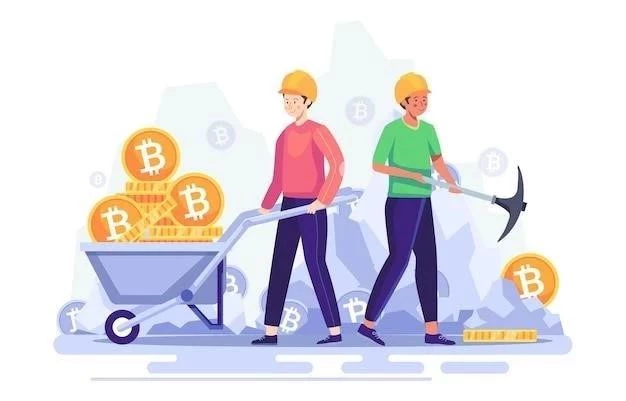Table content
## Bitcoin Diggers Wrestle, Steadfastness Pursues a Route
* Bitcoin diggers are confronting a survival predicament because of contracting square compensations.
* Steadfastness proposes an answer: countries and organizations should mine at a misfortune.
* Bitcoin diggers have blended sentiments about this proposition, with certain specialists calling it “normal.”
Bitcoin diggers have been stressed over their contracting plan of action for quite a long time.
Satoshi Nakamoto’s plan, which covered the digital money at 21 million bitcoins, engaged clients looking for a sanctuary against inflationary government strategies. Nonetheless, this restriction additionally implies that the prizes for Bitcoin mining are diminishing.
Presently, examiners at Steadfastness Advanced Resources say they see an answer: on the off chance that organizations and nations need the digital currency to keep on existing, they should begin mining Bitcoin themselves as quickly as time permits—regardless of whether it implies taking a misfortune.
“Numerous nations, foundations, and organizations are benefitting from Bitcoin—however not through mining,” Steadfastness composed. “Consequently, mining to safeguard the organization can be viewed as a working expense.”
Kiyosaki: Global Economy Declining, Predicts Bitcoin at 0,000 diggers contend to track down new squares and are compensated with a specific measure of Bitcoin for their endeavors. In any case, like clockwork, Bitcoin goes through a “splitting”—which cuts the square prize down the middle.
For Steadfastness, the organization could be kept up with by organizations that procure the board expenses from Bitcoin ETFs, instead of depending exclusively on mining organizations.
This incorporates Steadfastness itself, which says it has previously begun mining Bitcoin.
Corporate trailblazers like MicroStrategy may likewise assist with safeguarding the organization.
## Diggers Can’t Help contradicting
Bitcoin diggers are pushing back, saying they don’t completely accept that organizations will be able to burn through a huge number of dollars to keep the organization running.
“I don’t accept it,” said Scratch Hansen, Chief of Bitcoin mining organization Luxor. Toncoin (TON) Value Forecast for March 26th
He contends that organizations will not be able to pay an expected $1 million each hour to keep the Bitcoin network running.
He communicated to DL News that it was improbable that Fidelity would consent to prepay for this.
Jameson Lopp, the chief technology officer at Casa, a digital currency custody company, informed DL News that the notion was “feeble.” He mentioned that it presumes nobody will utilize the real system, which is a conceivable but improbable circumstance.
Andy Fajfar, the chief executive officer of Bitcoin mining pool Loka Mining, revealed to DL News that administrations and private organizations are examining whether mining at a misfortune is advantageous. He expressed that it depends on whether it benefits the system — or a nation’s key situating.
The contention mirrors the pressures confronting the Bitcoin mining industry as it faces a fundamental risk. By 2032, the reward for each piece on the system will be not exactly one Bitcoin.
Others are less persuaded.
One thing is certain:
“As Bitcoin mining turns out to be more difficult and less beneficial, its job may move in the coming a long time, even with low vitality costs,” Nishant Sharma, the originator of BlocksBridge Consulting, told DL News.
Fidelity, the second-biggest ETF supplier with $200 billion in resources under administration, did not react to a solicitation for input on whether it would mine at a misfortune.
“Will ETPs dispense with the requirement for the piece space? Obviously not,” Lopp expressed, “but inventive designers can continuously concoct more approaches to use piece space and possibly make more request.”
## The Greater View
*Pedro Solimano is a market journalist situated in Buenos Aires. Got a tip? Email him at [email protected].*


